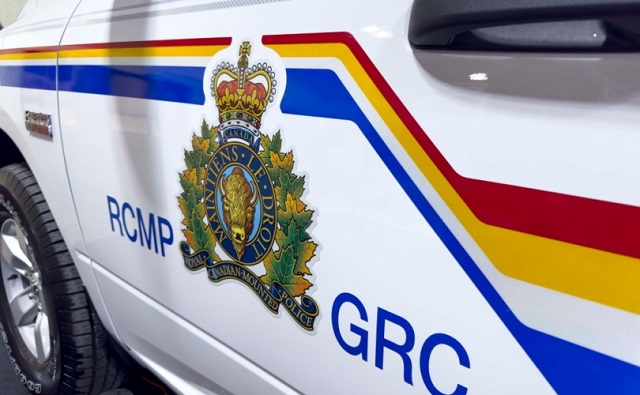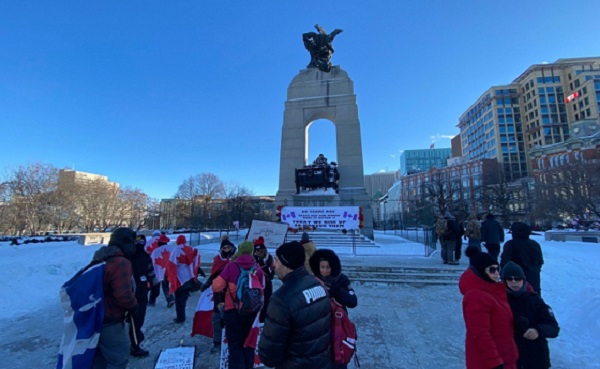Alberta
79 new cases of COVD-19 in Alberta – Provincial update (March 28, 4:30)

From the Province of Alberta
Update 15: COVID-19 pandemic in Alberta (March 28 at 4:30 p.m.)
Seventy-nine additional cases of COVID-19 have been confirmed, bringing the total number of cases in the province to 621. Aggressive public health measures continue to help prevent the spread of COVID-19.
Latest updates
- Cases have been identified in all zones across the province:
- 378 cases in the Calgary zone
- 139 cases in the Edmonton zone
- 48 cases in the Central zone
- 43 cases in the North zone
- 12 cases in the South zone
- One case is in a zone which is yet to be confirmed
- In total, there have been 38 hospitalizations, with 12 admitted to intensive care units (ICU).
- Two deaths have been reported.
- Up to 54 of the 621 cases may be due to community transmission.
- To date, 20 cases have been identified in staff and residents of continuing care facilities, including 15 in McKenzie Towne Long Term Care, one case in Rosedale on the Park and four at Shepherd’s Care Kensington Village (unchanged from yesterday).
- There are now a total of 53 confirmed recovered cases.
- Aggregate data, showing cases by age range and zone, as well as by local geographical areas, is available online at alberta.ca/covid19statistics.
- All Albertans need to work together to help prevent the spread and overcome COVID-19.
- Restrictions are in place for close-contact businesses, dine-in restaurants and non-essential retail services. A full list of restrictions is available online.
- Albertans are prohibited from attending gatherings of more than 15 people, and they must continue to observe two metres of social distancing. This includes events both indoors and outdoors, such as family gatherings, weddings and funerals. Further details are available online.
- Guidelines for health care workers to follow regarding personal protective equipment (PPE) when caring for individuals who may have COVID-19 are available online.
- Risk assessment and management guidelines for managers and operators of industrial work camps are available online.
Increased security for Alberta renters
A new package of direct supports and deferrals is being provided to ensure security for residential renters amid the financial burden brought on by the COVID-19 crisis. Tenants will be protected from eviction for non-payment before May 1, 2020, rents will not increase during the state of public health emergency and late fees cannot be applied to rent payments for three months.
Vehicle restrictions in parks and recreation areas
Automobile access is temporarily suspended at all provincial park and recreation area access points. This matches the restrictions currently in place at national parks.
List of essential workplaces
The list of essential workplaces that can continue to operate in Alberta can be found online.
Recruiting physicians
The College of Physicians and Surgeons of Alberta has developed an online tool for Alberta physicians to self-report their ability to be redeployed to help with the COVID-19 pandemic. Once the College has identified doctors who can provide additional services, AHS will help with recruitment and ensure the doctors are deployed to the areas of greatest need where they will have the most impact.
Operating guide for continuing care
A new guide with mandated directions on how to respond to and prevent COVID-19 concerns and cases has been posted online for operators of continuing care facilities, seniors lodges, residential addiction treatment facilities and licensed facilities for person with disabilities.
Diagnostic imaging and lab tests
Effective immediately, Alberta Health Services (AHS) is postponing some diagnostic imaging procedures as part of the effort to prevent the spread of COVID-19 and protect Albertans. Imaging deemed to be non-urgent by the ordering physician will be postponed.
AHS will work closely with patients whose exams are being rescheduled. Patients whose conditions change should connect with their physicians.
To free up more laboratory space for COVID-19 testing, physicians and community providers are being asked to immediately stop all non-essential and routine laboratory testing.
Flexibility for municipal governments
Government has added a new COVID-19 containment measure under the Municipal Government Act (MGA) called the COVID-19 Suppression Regulation. This gives local governments flexibility in doing business during the COVID-19 outbreak, including the option to hold meetings while still observing physical distancing. Municipal Affairs has extended a number of reporting timelines under the MGA, giving municipalities the time and ability to deliver on the needs of their residents and meet the requirements set out by the act.
Mental health supports
AHS has boosted its service to help Albertans should they need to speak with someone about mental health concerns.
If Albertans call the Mental Health Help Line at 1-877-303-2642 or the Addiction Help Line at 1-866-332-2323 between 7 a.m. and 11 p.m., seven days a week, they will be connected directly to a dedicated team of AHS addiction and mental health staff.
This change will allow 811 operators to focus on COVID-19 calls during the day and improve wait times for others needing telephone advice. Calls placed from 11 p.m. to 7 a.m. will continue to be routed through 811.
Pausing some health construction projects and non-essential service contracts
In order to protect patients, families and staff providing key services inside health-care facilities, AHS has informed some contractors and vendors that provide non-essential services at some health facilities that their projects will be temporarily paused.
These include non-essential delivery services and facility maintenance, such as flooring replacement, departmental renovations or lighting retrofit projects.
Alberta Infrastructure is also working with AHS to ensure that construction projects being done inside health facilities do not impact the operations of the facility.
As each project is reviewed and assessed, Infrastructure will provide notice to affected contractors if any projects are deferred.
Emergency isolation supports
Emergency isolation supports are available for Albertans who are self-isolating or who are the sole caregivers for someone in self-isolation, and have no other source of income. Applicants can view eligibility criteria and apply at alberta.ca. To carefully manage the flow of applications, we are periodically closing access to MADI and the emergency isolation support. We will provide daily updates about system availability.
There is no formal deadline for emergency isolation support. This is a temporary program to bridge the gap until the Federal Emergency Care Benefit is available.
Access to justice
Effective March 30, 2020, public access to all courthouses in Alberta will be restricted until further notice. Members of the general public will only be permitted to enter a courthouse in certain circumstances. More information: https://www.albertacourts.ca/qb/resources/announcements/notice-to-the-public-and-legal-profession-restricted-access-to-courthouses.
The Court of Queen’s Bench is accepting requests for emergency/urgent hearings in all criminal, family, commercial and civil matters online or over the phone (for parties without access to the internet). More information: https://www.albertacourts.ca/qb/resources/announcements/requests-to-the-court-for-emergency-urgent-hearings.
Food supply
Despite higher retail demand, Alberta’s food supply remains secure. Government is in regular contact with other levels of government, producers, distributors, retailers and processors to ensure it stays that way. We are working with food banks and Indigenous communities to understand their needs and ensure everyone has access to the food supplies they need.
Medical evaluation for drivers’ licences
Alberta Transportation has extended the timeline to 90 days for most drivers requiring a medical evaluation to complete their medical form when applying for or renewing their licence. This will reduce the current strain on the health-care system. Medically high-risk drivers will still be required to present their medical evaluation at the time of their application or renewal.
Offers of help
The Alberta Emergency Management Agency Unsolicited Offers Program has been set up in response to growing offers of generosity from individuals and organizations to help with the challenges many Albertans are facing due to the COVID-19 pandemic. Those wanting to help can go toalberta.ca/COVID19offersprogram for more information.
Quick facts
- The most important measures that Albertans can take to prevent respiratory illnesses, including COVID-19, is to practise good hygiene.
- This includes cleaning your hands regularly for at least 20 seconds, avoiding touching your face, coughing or sneezing into your elbow or sleeve, disposing of tissues appropriately, and staying home and away from others if you are sick.
- Anyone who has health concerns or is experiencing symptoms of COVID-19 should complete an online COVID-19 self-assessment.
- For recommendations on protecting yourself and your community, visit ca/COVID19.
Related information
Alberta
Premier Smith moves to protect Alberta in International Agreements

Protecting Alberta’s jurisdiction
The International Agreements Act ensures Alberta’s jurisdiction is protected and decisions that shape our future are made right here at home.
This legislation draws a clear line: international agreements that touch on provincial areas of jurisdiction must be debated and passed into law in Alberta.
Alberta, not Ottawa, will decide how international agreements that affect provincial matters apply in the province.
“As we return to the legislature, our government is focused on delivering on the mandate Albertans gave us in 2023 to stand up for this province, protect our freedoms and chart our path forward. We will defend our constitutional rights, protect our province’s interests and make sure decisions that affect Albertans are made by Albertans. The federal government stands at a crossroads. Work with us, and we’ll get things done. Overstep, and Alberta will stand its ground.”
While the federal government has the power to enter into international agreements on behalf of Canada, it does not have the legal authority to impose its terms on provinces. The International Agreements Act reinforces that principle, ensuring Alberta is not bound by obligations negotiated in Ottawa that do not align with provincial priorities.
Bill 1 was introduced by Premier Danielle Smith following the fall 2025 speech from the throne as part of Alberta’s commitment to defend its sovereignty within a united Canada.
Key facts
- If passed, the International Agreements Act will replace the International Trade and Investment Agreements Act.
- The new legislation would expand its scope beyond trade and investment to include all areas of provincial jurisdiction.
- Currently, there is no formal agreement or requirement for the federal government to consult provinces when negotiating international treaties.
- Quebec’s Act respecting the exercise of the fundamental rights and prerogatives of the Québec people and the Québec State came into force in 2000.
- International agreements do not apply in Quebec unless approved by the national assembly or the provincial government.
- Quebec must give clear consent before any international agreement takes effect.
Related information
Agriculture
From Underdog to Top Broodmare

WATCH From Underdog to Top Broodmare (video)
Executive Producers Jeff Robillard (Horse Racing Alberta) and Mike Little (Shinelight Entertainment)
What began as an underdog story became a legacy of excellence. Crackers Hot Shot didn’t just race — she paved the way for future generations, and in doing so became one of the most influential producers the province has known.
The extraordinary journey of Crackers Hot Shot — once overlooked, now revered — stands as one of Alberta’s finest success stories in harness racing and breeding.
Born in humble circumstances and initially considered rough around the edges, Crackers Hot Shot overcame long odds to carve out a career that would forever impact the province’s racing industry. From a “wild, unhandled filly” to Alberta’s “Horse of the Year” in 2013, to producing foals who carry her spirit and fortitude into future generations.
Her influence ripples through Alberta’s racing and breeding landscape: from how young stock are prepared, to the aspirations of local breeders who now look to “the mare that did it” as proof that world-class talent can emerge from Alberta’s paddocks.
“Crackers Hot Shot, she had a tough start. She wasn’t much to look at when we first got her” — Rod Starkewski
“Crackers Hot Shot was left on her own – Carl Archibald heard us talking, he said ‘I’ll go get her – I live by there’. I think it took him 3 days to dig her out of the snow. She was completely wild – then we just started working on her. She really needed some humans to work with her – and get to know that people are not scary.” — Jackie Starkewski
“Crackers Hot Shot would be one of the top broodmares in Albeta percentage wise if nothing else. Her foals hit the track – they’re looking for the winners circle every time.” — Connie Kolthammer
Visit thehorses.com to learn more about Alberta’s Horse Racing industry.
-

 Agriculture2 days ago
Agriculture2 days agoFrom Underdog to Top Broodmare
-

 Health2 days ago
Health2 days agoSovereignty at Stake: Why Parliament Must Review Treaties Before They’re Signed
-

 Business2 days ago
Business2 days ago$15B and No Guarantees? Stellantis Deal explained by former Conservative Shadow Minister of Innovation, Science and Technology
-

 RCMP2 days ago
RCMP2 days agoPolice arrest thieves using garage-door openers to access homes in Vanier, West Park, Anders Park, and Evergreen
-

 Bruce Dowbiggin2 days ago
Bruce Dowbiggin2 days agoWhile America Shrugs Off Woke, Canada Doubles Down On Feminizing Society
-

 Energy2 days ago
Energy2 days agoNational media energy attacks: Bureau chiefs or three major Canadian newspapers woefully misinformed about pipelines
-

 COVID-192 days ago
COVID-192 days agoCanadian veteran challenges conviction for guarding War Memorial during Freedom Convoy
-

 DEI1 day ago
DEI1 day agoConservative push to end Canada’s ‘anti-merit’ DEI programs receives support






